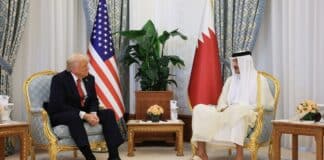The U.S. State Department has dispatched senior officials to France and Ireland to address escalating concerns over free speech restrictions in Europe. This initiative, spearheaded by the Bureau of Democracy, Human Rights, and Labor, aims to confront what the department identifies as “egregious examples of democratic backsliding” and infringements on fundamental rights, particularly freedom of speech, religion, and privacy.
In France, the delegation is set to discuss the recent arrest of Marine Le Pen, a prominent conservative politician and presumptive presidential candidate. Le Pen was charged with embezzlement, swiftly found guilty, placed under house arrest, and barred from seeking elected office for five years. The State Department views the rapid legal proceedings and the severity of the penalties as “unique and concerning,” raising questions about political impartiality and due process.
In Ireland, discussions will focus on the European Union’s Digital Services Act, legislation intended to protect children by moderating online content. However, U.S. officials express concern that the law is being used to suppress political speech deemed offensive by European governments. This has implications not only for European citizens but also for American companies operating in Ireland, particularly in the technology sector.
Vice President JD Vance has previously highlighted the threat of internal censorship within allied nations, emphasizing that such actions disproportionately target Christian, conservative, or nationalist voices. He noted that similar tactics have been employed against President Trump and his supporters in the United States over the past eight years.
Secretary of State Marco Rubio underscores that the State Department’s actions are driven by national interest. He stresses the importance of shared values, stating that alliances could falter if the U.S. and its partners are not aligned politically and civilizationally. The department believes that open dialogue about these concerns is essential to maintaining strong international relationships.





